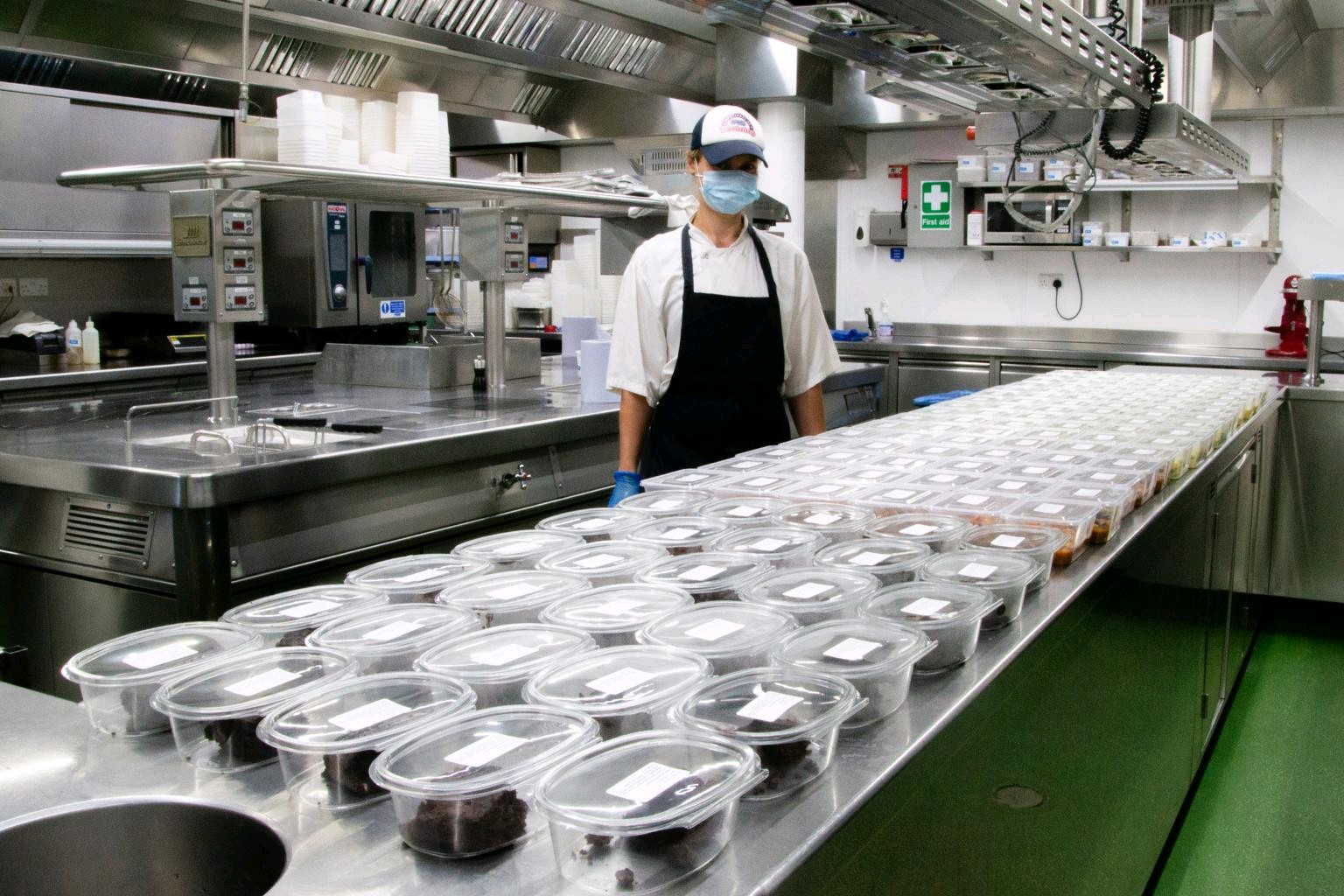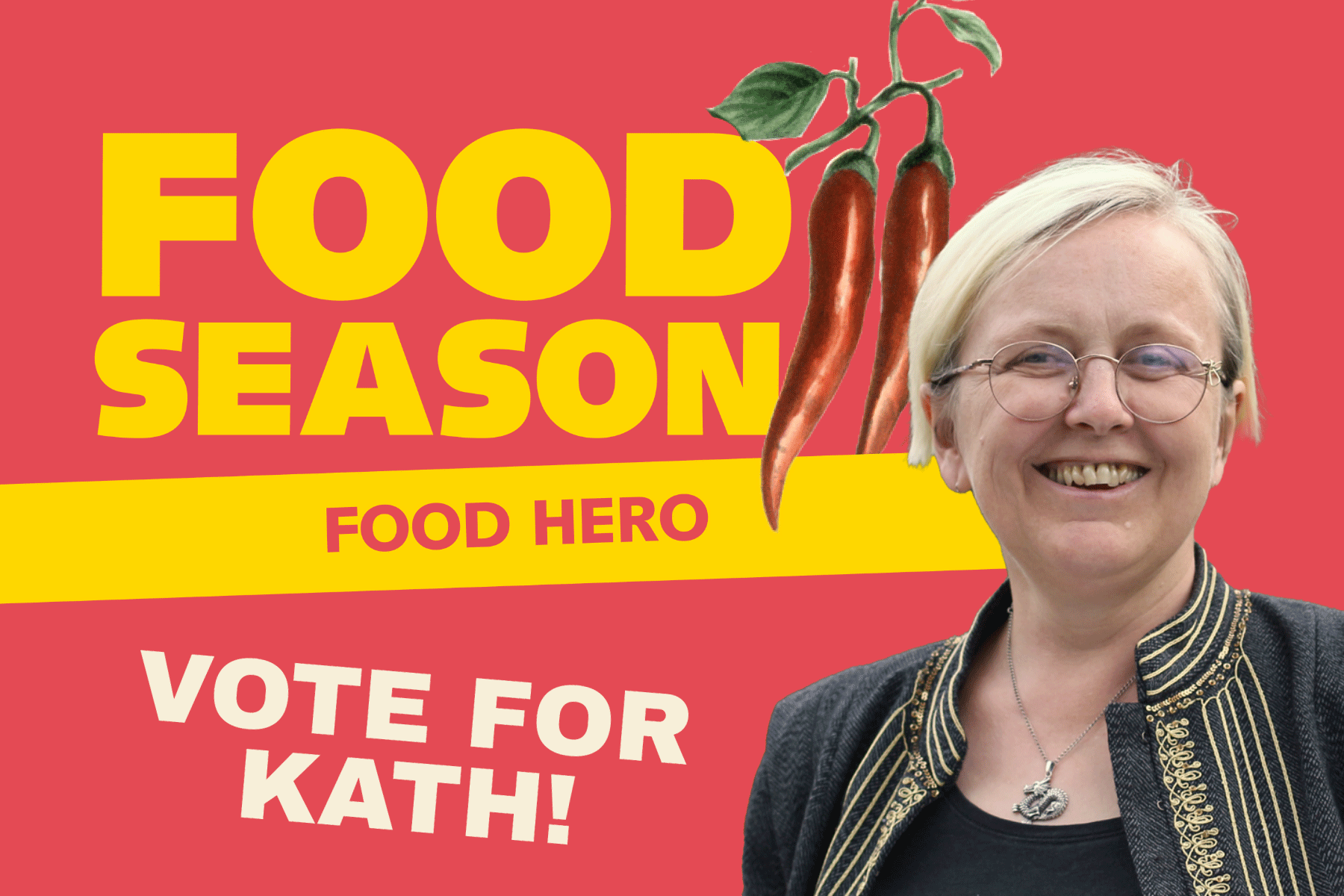 Photo: Mark Silvester
Photo: Mark Silvester
The Lockdown Chef - Volunteering In a Pandemic
Throughout lockdown, thousands of people have volunteered to support those most impacted by the pandemic. We talk to one of these volunteers, Andrea Zick, who has been cooking plant-based meals at Lewisham Irish Community Centre.
A huge amount of effort has been focussed on ensuring access to good food for everybody impacted by lockdown. Meal services have played a key role in keeping people fed. Andrea is Personal Assistant to the General Manager at OXO Tower Restaurant, Bar and Brasserie, and shared her experience of volunteering in lockdown.
When lockdown began, what were the first steps you took to help support your community?
In the first week we had so much surplus food at the OXO Tower Restaurant that our partners at City Harvest, Olio and Too Good To Go were not able to take all of it. So, in desperation, I contacted Catford Fridge and thankfully they were able to take some. When doing the delivery I mentioned that I’d love to help. As a trained chef, I am able to find inventive ways of using up surplus food and I live in walking distance from the Irish Centre. I started cooking about 40 plant-based meals each week!
What has been the most challenging aspect of volunteering during the lockdown?
Maybe this sounds naïve but volunteering during lockdown has actually been pretty easy—maybe easier than ever, because I’ve had the time on my hands to make a difference. I’ve done a lot of volunteering while working full-time, but the challenge has always been to fit it into the many other things in my life.
I think I’ve also been lucky in that everyone involved in the Bia Project—the Centre’s healthy meals service for the elderly and those self-isolating—have skills which complement one another. Looking back at it, I honestly do not think there have been any real challenges. Problems were approached with a desire to overcome them and all of us pulled together when we needed to.
What have you learnt from being on the front line during a crisis?
I learned much about the smaller community groups and how critical they are in terms of support for those in need. While a lot of the bigger charities scrambled, these community groups seemed to be the ones capable of finding ways to work within new boundaries. They did so because they knew their community and activated those who were able to help. Councils reacted fairly swiftly and by working with community groups, they helped to amplify the impact—so I also learned that local governance is a lot better than we often give it credit for.
What advice would you give to people looking to set up a community food support group?
I would say speak to as many people about it as possible. This will not only allow you to find the resources you need, but = help with solutions. I guess my role as a chef was key to this project and some might say my skillset is unique, but I disagree. In fact, many without professional training would be able to make this happen, so long as they have the desire and right attitude to do so. Getting in touch with organisations such as Hubbub, FareShare, City Harvest and The Felix Project is a great way to link yourself with likeminded people, but don’t dismiss the smaller local community hubs who know the people in their neighbourhoods and can quickly pool support.
Community kitchens and foodbanks—with support from the wider food industry—have played a vital role in supporting communities during the pandemic. How do you see these groups working together going forward?
Personally, I hope food banks and community kitchens are not looked to as a long-term solution, as they are in some ways band aids for much deeper problems in society—namely food insecurity and poverty. However, realistically, many people rely on both so by getting professional chefs and restaurant managers to look at the set-up and management of community food projects, you could potentially help to streamline them. I also think there is capacity for commercial kitchens to continue producing some community meals.
What do you think the long-term impacts of the pandemic will be on the good food industry?
A lot has been written about the changes that have occurred in the way people eat and appreciate food, with more people cooking and baking, as well as many moving to more plant-based diets. As a nutritionist, I think this could be a good thing; re-skilling people to cook nutritious meals and appreciate food more could also help to reduce food waste at home.
Having said that, as someone in the food industry, I hope that there will still be a vibrant culture of people eating out. Meeting friends and family at a restaurant is about so much more than just consuming a well-cooked meal: a good dining experience touches all of the senses and creates memories, much like storytelling and theatre.
London Food Link: London Food Link brings together community food enterprises and projects that are working to make good food accessible to everyone in London to help create a healthy, sustainable and ethical food system for all.
Sustain
The Green House
244-254 Cambridge Heath Road
London E2 9DA
020 3559 6777
sustain@sustainweb.org
Sustain advocates food and agriculture policies and practices that enhance the health and welfare of people and animals, improve the working and living environment, promote equity and enrich society and culture.
© Sustain 2025
Registered charity (no. 1018643)
Data privacy & cookies
Icons by Icons8
